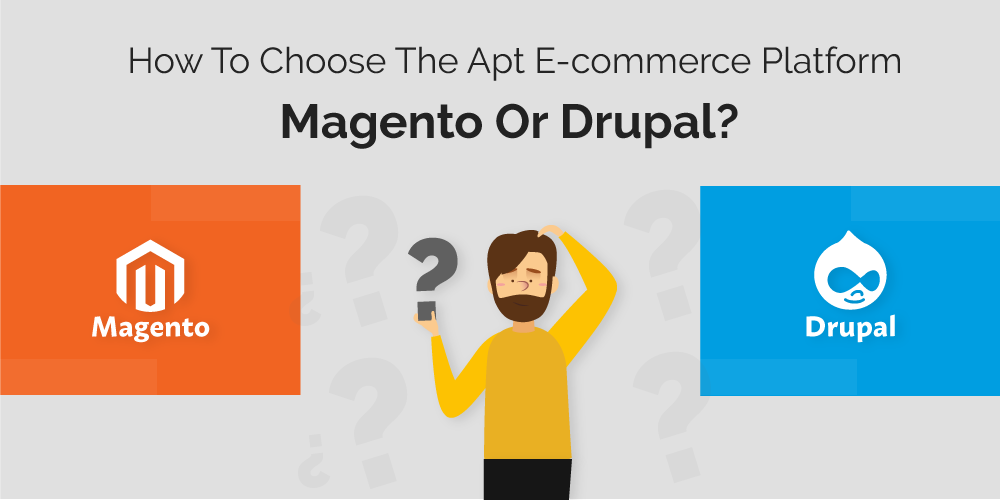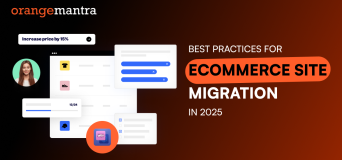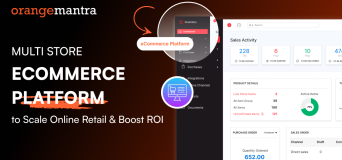
Here’s what you will learn:
The toughest aspect of setting up an e-commerce business is to select the right development platform for your e-commerce store. There are several e-commerce platforms out there, which means that you will definitely be spoiled for choice. However, you need to consider several factors and parameters while comparing the options and finalizing the one that works perfectly for your needs.
Magento and Drupal Commerce are amongst the top eCommerce development platforms that are emerging as winners. Considering their features and offerings, the choice between the two may cause confusion but everything boils down to your specific requirements and budget. Let us make a comprehensive comparison between the two platforms based on the parameters such as technical capabilities, scalability, interoperability, development and maintenance costs and more.
Table of Contents
Suitability for e-commerce platform
Since the prime motive of this comparison is to decide the platform that works best for an online store, the suitability for e-commerce comes ahead as the first parameter for comparing them. Here, it is important to understand the structural and functional basics of both the e-commerce platforms.
Magento
Essentially, Magento is a platform tailored for e-commerce and has all the eCommerce website development features that you need to render in a fully-functional online store. You can use it to develop a store that sells traditional products, both on retail and wholesale business models. If required, you can also use it to create one that sells digital products. From handing the product catalog on the storefront to managing its administration at the backend, Magento is capable of taking care of the entire aspects.
Drupal
Conversely, Drupal was initially meant to be a content publication and management platform, making it a great one for blogs, forums, news, e-books, social content, and more. However, Drupal Commerce has been created with e-commerce functionality in mind. The platform is more suitable for stores that sell non-traditional products such as a subscription type content that does not involve complex category system and several product groups.
Interoperability with the host CMS
The second factor that you need to consider when opting between Drupal and Magento store development is the operability with the host CMS.
Magento
The platform entirely operates as a third-party system which can be wired into any CMS for displaying inventory. Alternatively, it can be deployed as a sole installation as well. The absence of a native host CMS gives it a flexible inventory framework which is easy to understand and manage. Also, it offers extensive GUI-driven customizability because it accommodates itself to different host environments.
Drupal
Drupal Commerce, on the other hand, is a dedicated framework which intends to add e-commerce capabilities to the Drupal CMS. This collaboration with a renowned CMS makes it easy to integrate e-commerce features with the content channels. Further, it brings significant flexibility and configurability in the way the content is displayed to the audience.
Scalability
Another factor that matters for e-commerce platform merchants is scalability as it determines the capability of the store to align with the growing product catalog and traffic volume.
Magento
With Magento, you get the advantage of high scalability. By opting for Magento 2 development, you get considerable enhancements in scalability and performance. This means that your business gets the advantage of excellent user experiences despite traffic booms and loads. Further, high scalability means that the store becomes future-proof and you can extend the product range as they need may be with business growth.
Drupal
As compared to Magento, Drupal Commerce has smaller installation footprint. Moreover, it has the capability of rendering highly performance at scale. Though a database sharding solution is not available out-of-the-box with this platform, it can be implemented on a third-party basis. This means that Drupal Commerce will nor fail on the scalability and performance fronts.
Learning curve and online resources
When it comes to choosing an e-commerce platform, you cannot ignore the ease of learning, understanding and using it.
Magento
In terms of learning curve and complexity, Magento is a demanding framework that requires advanced PHP skills. You will surely need to hire a Magento developer to develop, customize, and maintain your store. But the expense is worthwhile, considering that you will have a store which is easy to manage from the admin end. Since this is an open-source platform, you can find plenty of online help and documentation from its large community.
Drupal Commerce
For Drupal Commerce, online help is available as a forum where you can put across your queries to the Drupal community and technical support channel. The platform also comes with a queued ticketing system, which you can check out for reliable support from the expert Drupal developers themselves.
Headless e-commerce
Another perspective that you must bear in mind while comparing Magento and Drupal is its aptness for headless eCommerce.
Magento
Magento is committed to headless e-commerce. It enables the creation of UX-friendly and faster-performing online stores for businesses. Further, the platform also offers PWA Studio, which is a suite of PWA development tools that facilitate the creation of Progressive Web Apps for the Magento store.
Drupal
The headless version of Drupal Commerce is a new initiative which brings a decoupled, API-driven implementation. It makes e-commerce functionality easily available across a variety of host environments and takes the model towards a more platform-agnostic, SaaS-oriented solution. The approach of headless e-commerce is also applicable to PWA model.
Pricing
While comparing any two platforms, pricing is a factor that you will definitely need to consider. The comparison is more holistic as it covers both the development and post-deployment stages.
Magento
Magento is more than a decade old and has evolved over this period. It is available in different editions, namely Magento Open Source, Magento Commerce, and Magento Commerce Cloud. When you opt for Magento development, you will need the services of experts to create the store even with the Open Source version. Also, it is to be noted that you may have to spend thousands in dollars on buying extensions or having them customized. The additional costs include those of migrating to Magento 2 version, ongoing maintenance, and emergency support when required.
Drupal Commerce
Drupal Commerce is also a developer-oriented platform where the technical entry cost of entry is free because it is open-source. However, you will need to collaborate with a professional Drupal development agency for creating an e-commerce store. The cost may run in thousands of dollars, depending on the scale and complexity of the project. Again, there may be costs associated with upgrade, maintenance, and support depending on your needs. The hourly salary of Drupal developers is marginally higher than that of Magento professionals.
Conclusion
Now that you understand how these eCommerce marketplace development platforms vary on the basis of the key parameters, you will be in a better position to decide the one that works for you. When you do choose one of the two, bear in mind your specific business needs and the expectations of your customers. The idea is to prioritize the platform that works from both perspectives, business as well as customers. Additionally, it should be an easy fit within your budget. Once you are sure about the platform choice, partnering with the right development company is the next step to get you started.
It is best to find one that has skills and expertise in both the platforms as they can guide you about the apt one and implement it as well. OrangeMantra is a leading Custom eCommerce website development Company in Gurgaon that specializes in creating online stores of diverse sizes and types. We ace in both Magento and Drupal Commerce platforms and can help you choose the one that is absolutely right for you. If you have already chosen one of these, we can get your development process started. Contact us and we will create a strategic road map for your e-commerce business.


